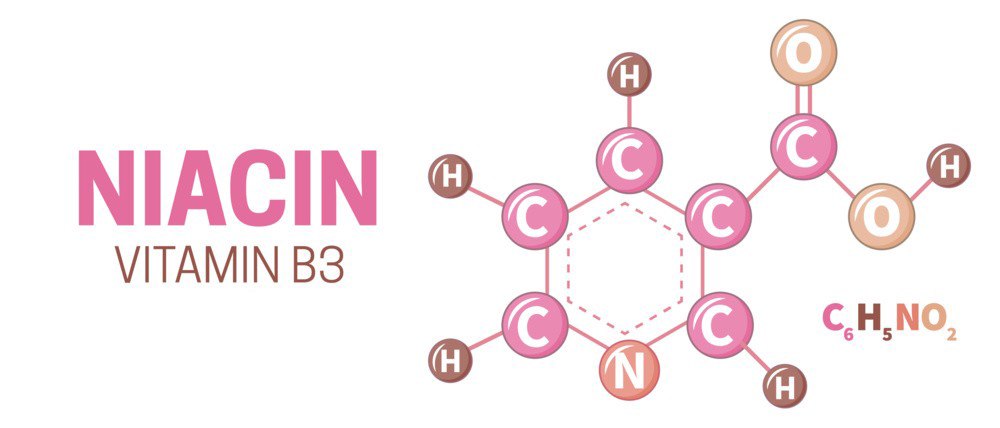Niacin, also known as vitamin B3 or nicotinic acid, is a water-soluble vitamin that plays a crucial role in various metabolic processes in the body. Here are details on its availability, side effects, and special considerations:
Availability of Niacin:
1.Dietary Sources: Niacin is naturally present in many foods, including meat, fish, poultry, enriched bread and cereals, and nuts.
2.Supplements: It is also available as a dietary supplement in various forms, including immediate-release and extended-release tablets.

Side Effects of Niacin:
1.Flushing: One of the most common side effects of niacin is skin flushing, which can cause redness, warmth, itching, or tingling, especially in the face and upper body. This effect is more common with immediate-release formulations and tends to decrease over time.
2.Gastrointestinal Effects: Niacin can also cause nausea, vomiting, diarrhea, and abdominal pain, especially when taken in high doses.
3.Liver Toxicity: High doses of niacin can lead to liver toxicity, characterized by elevated liver enzymes and potentially severe liver damage.
4.Other Effects: Rarely, niacin can cause glucose intolerance, gout, and changes in blood pressure.
Special Considerations:
1.Medical Conditions: Individuals with liver disease, active peptic ulcer disease, or severe hypotension should use niacin with caution or under medical supervision.
2.Interactions: Niacin can interact with other medications, including blood pressure medications, cholesterol-lowering drugs, and diabetes medications. It’s important to consult a healthcare provider before starting niacin supplements if you’re taking other medications.
3.Dosage: The recommended daily allowance (RDA) for niacin varies with age and sex, but typical adult doses for therapeutic purposes can range from 500 mg to 2000 mg per day, often divided into multiple doses.

4.Extended-Release Formulations: Extended-release niacin formulations are designed to minimize flushing and may reduce the risk of liver toxicity compared to immediate-release forms. However, they still require monitoring for potential adverse effects.
5.Monitoring: Regular monitoring of liver function tests and other relevant parameters is recommended for individuals taking high doses of niacin or those at risk for liver problems.
In summary, while niacin is essential for health and available through both diet and supplements, its use should be approached cautiously, especially at higher doses. Understanding potential side effects and interactions can help mitigate risks and maximize benefits under medical supervision.
